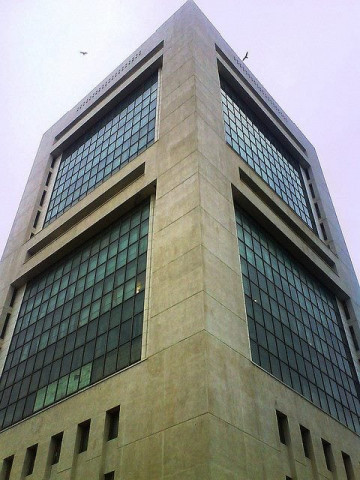Absolute power: Competition non-existent as NICL dominates
Discriminatory rules forced foreign firms out and discouraged local firms

Discriminatory rules forced foreign firms out and discouraged local firms. PHOTO: FILE
Best known recently for land scams it has been embroiled in, NICL is a text book case of how the government can use the power of law to distort competition, and how it leads to rent seeking.
At the time of independence, there were 77 international insurance companies working in Pakistan. To its own detriment, the government decided to “promote indigenous insurance industry” to “check the flow of funds from Pakistan to foreign companies”.
Pakistan Insurance Corporation (PIC) was established in 1953 under Pakistan Insurance Act of 1952. All insurance companies were required to cede 10% of all business underwritten in Pakistan to the PIC. This was later increased to 30%. (This exists to date, and the obligatory contribution is 35%).
A simultaneous decline in the number of foreign companies was observed — as they were discouraged by the discriminatory use of law against them.
NICL’s supremacy
On the crutches of a legal monopoly of insurance business of government assets, obligatory cession of 35% businesses by all other insurance companies and administrative control by the ministry of commerce, NICL today enjoys the status of “largest insurance company of Pakistan.” If it was not the case at the time of its corporatisation in 2001, the government ensured it by increasing its authorised capital to Rs6 billion — literary by a stroke of the pen.
While it does settle claims, it remits back dividends to its parent organisation, the ministry of commerce, and deposits its tax to the last resort of all SOEs, the ministry of finance. It parks significant amounts in investments, most of which are open to public scrutiny for being a source of corruption.
Thus, no real value is created by this series of transactions — the money stays within the government system except that through its circulation, it creates tremendous opportunities of rent-seeking.
The Clause 166 of the Insurance Ordinance 2001 provides legal protection for guaranteed cash flow for NICL. It effectively bars any entity except itself to insure public property, falling under federal and provincial governments as well as any company, authority or corporation set up by the government.
By parking the insurance of all government projects in one basket of NICL, the government commits an act of double jeopardy. First, if NICL goes bust, then the government will not only have to recover it, but it will also be held responsible for insurance claims.
An alternative mechanism for insurance of public property and government projects is very simple. Abolish NICL. Amend the Insurance Ordinance 2001 to allow the government projects to get insurance from the private sector. Imagine the kind of new business volume it will trigger inside our stunted private insurance industry and the competition itself will ensure that the government gets best possible rates for insurance of its projects and property.
Absent NICL, the insurance industry will lead to more competition and private sector-led growth will also improve the risk profile of the country.
The writer is founder and executive director of PRIME Institute, an independent think tank in Islamabad
Published in The Express Tribune, February 29th, 2016.
Like Business on Facebook, follow @TribuneBiz on Twitter to stay informed and join in the conversation.


















COMMENTS
Comments are moderated and generally will be posted if they are on-topic and not abusive.
For more information, please see our Comments FAQ